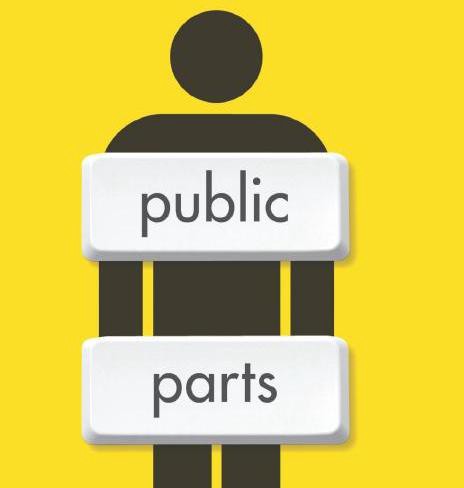Our Well-Paid Public Intellectuals Do It In Public (When Not At Davos)

Jeff Jarvis’ Public Parts, released September 27th and currently 12,098 in “books” on Amazon, has come under review by Evgeny Morozov. It is a rather singularly vicious review. From early on: “Why are we so obsessed with privacy? Jarvis blames rapacious privacy advocates — ‘there is money to be made in privacy’ — who are paid to mislead the ‘netizens,’ that amorphous elite of cosmopolitan Internet users whom Jarvis regularly volunteers to represent in Davos. On Jarvis’s scale of evil, privacy advocates fall between Qaddafi’s African mercenaries and greedy investment bankers. All they do is ‘howl, cry foul, sharpen arrows, get angry, get rankled, are incredulous, are concerned, watch, and fret.’ Reading Jarvis, you would think that Privacy International (full-time staff: three) is a terrifying behemoth next to Google (lobbying expenses in 2010: $5.2 million).” And then!
Two things:
Jarvis’s understanding of the law is as careless as his understanding of technology. Discussing the proposed “Do Not Track” legislation that would allow users to opt out of online tracking, he complains that “there’s no real need [for it], since users already have tools to stop tracking.” How far can such logic take us? Should we acquiesce to the NSA’s wiretapping of our phones because we can already speak in code? Should we allow dubious food products to be sold in supermarkets because we already have the tools to disinfect them?
And, a comparison of Jarvis’ last book, on Google, with his new:
Alas, Jarvis 2.0 says nothing about Digg.com’s Kevin Rose — whom Jarvis 1.0 proclaimed to be “the new Turner, Murdoch, Hearst — or Oprah,” which is understandable, given that Digg.com tanked right after it received Jarvis’s blessing. Public Parts has its own Digg.com moment, when Jarvis breathlessly celebrates Blippy, an Internet start-up built on the ridiculous premise that consumers want to share details of their credit card purchases. According to Jarvis, “this start-up will blow your mind” — but the only thing that Blippy has blown so far is its investors’ cash. It shut down its flagship service back in May, but you won’t learn this from Jarvis.
This being the age it is, of course there has been spillover!
Jarvis’ rejoinder on Google+! (on Google+!) wasn’t all that, although he followed up his follow-up with a comment: “That’s the topic where I agree with and compliment Morozov: The technology is neutral.” This gave Evgeny an opening to make the case that Jarvis can’t even say he agrees with Morozov on one thing because Jarvis isn’t even familiar with the chapter headings of Morozov’s book.

Well anyway. Everyone involved will go on getting paid well.
A few weeks ago, Alexander Abad-Santos wrote about Jarvis’ classes at the CUNY Graduate School of Journalism.
[Annaliese Griffin, the collaborative editor for The New York Times: Local in Fort Greene and Clinton Hill] recalled a time when he tried convincing her class to create jobs instead of jockeying for the existing (and endangered) jobs at mainstream outlets. At a certain point in the discussion she says that Jarvis was trying to get students to give up attachments to books, CDs, steady paychecks and other outmoded devices, Griffin interrupted and asked, “Well, don’t you pay your mortgage with checks signed by The New York Times and CUNY? I mean, aren’t those two institutions pretty much the definition of old media?”
“Jeff totally started laughing and just said, ‘Touché.’ which enraged the class because he was admitting that he has a pretty sweet deal getting paid by big institutions to talk about how outdated they are,” she said. “So the class started saying, ‘Yeah, why are you telling us this from your cushy spot?’ He, in a matter of words, said, ‘I figured out how to get here in this market. I’m trying to help you figure out how to find your own job or build your own company in any market.’”
